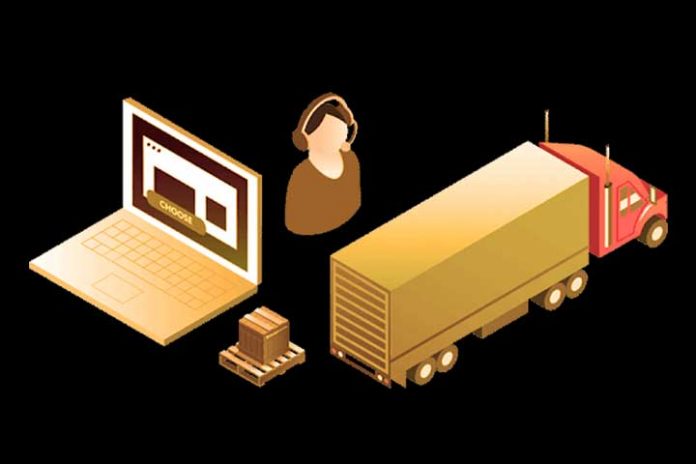In today’s business environment, freight brokers face an uncertain future and unreliable profits. Many broker companies are turning to freight broker software that can put them ahead of the competition to increase their chances. However, to get the most out of freight brokerage software, businesses must first understand their markets, the environment, and the issues that affect them.
While experienced freight brokers will understand what they require and want from transportation management software, many may be unaware of all the benefits to their overall performance and profitability. This blog will discuss how freight broker software improves company performance and the benefits of using it.
How freight broker software boosts efficiency
1. Automation
Automation will boost efficiency even further by reducing operations teams’ time on manual and repetitive tasks. Processes that combine essential activities, such as document inspection and payment administration, will provide the broker with comprehensive insight and improved overall efficiency. These functions will also apply to load board tracking by maximizing the use of a broader range of logistics providers while keeping overhead costs under control.
2. Improved Document Management
When it comes to document management, unified systems will eliminate the often expensive delays and the added stress that comes with them. Instead of searching for documents across multiple systems, centralized storage within a single software saves users hundreds of hours of work time.
Integrated Online Payments – Rather than spending several minutes on each payment initiation, freight brokers can use an integrated payment process that automates the accounting process and reduces the overall payment clock.
3. Analytics
Rather than waiting weeks for a carrier scorecard to be created, comprehensive systems will allow real-time performance measurements of carriers, shipper relationships, and other logistics service providers.
The Advantages of Freight Brokerage Software Automation
Logistics automation and artificial intelligence (AI) have played a significant role in the transportation industry by increasing efficiency, eliminating waste, and saving time and money. The following are some of the advantages that freight brokers may expect from AI-powered freight broker software.
1. Elimination of errors
Logistics automation capabilities such as commodities integration through an ERP system, address book access, and automatic entry of fuel surcharges or add-ons will be free of human error.
Manual data input mistakes frequently result in increased shipping expenses, such as paying higher freight rates or paying twice for the shipment because the incorrect commodity freight classification was entered.
2. Speed and scalability
With excellent logistics automation capabilities integrated into a single piece of software, no extra personnel is required to manage freight, logistics, and transportation departments. Even if the company expands and delivers more freight than ever before, the software will integrate new users into the system and manage them in the same way it did previously. Furthermore, freight accounting automation will ensure that all freight invoices are consolidated into a single weekly invoice, regardless of the number of shipments at each location. The CFO’s work becomes more manageable and less prone to error as a result of this.
3. Improved Visibility
Good freight broker software will allow users to track their shipments straight from the cargo profile. Brokers will follow everything from the shipment’s activity log with direct API/EDI interfaces to LTL carriers. All goods in transit will be seen from above by operation teams.
4. Customer Service Improvement
Having access to on-demand updates would also empower service personnel. These changes will be published on the customer site, allowing clients to follow the shipments directly. Clients will also be able to access information such as pricing, pick-ups, arrival dates, and destinations via automated alerts.
5. Increase Shipment Volume
The platform will provide brokers and their clients with instant access to all freight rates. These rates will be displayed in a single location, and clients will obtain instant quotes. All clients will access this information directly via a branded self-service customer site, increasing shipping volume without adding workload.
6. Better Control of Shipment Lifecycle
The freight broker platform must also provide direct API and EDI carrier connectivity, which will provide employees with essential insights and control over the entire shipment lifecycle. There will also be automated dispatching and tracking available to move the shipment from quote to delivery without the need for direct personal participation.
7. Real-Time Freight Data and Analysis
With real-time freight data and the capacity to run reports, freight brokers will be better able to make more educated business decisions based on developing patterns and historical data. With the ability to access actionable data at the touch of a button, brokers will understand the overall cost of their actions and minimize any future poor judgments.
8. Better Organizational Control
Operations teams will be able to reclaim control of their freight management, costs, and risks by utilizing logistics automation tools inside broker software. A platform of this type will be adaptable enough to meet a company’s business regulations without jeopardizing security or cost-effectiveness.
Conclusion
The freight broker sector is rife with rivalry. To stay up, freight brokers must find the proper software to streamline their job and offer them an advantage over the competitors.
Automation is the key to success, and it will assist in keeping those juggling balls in the air!

